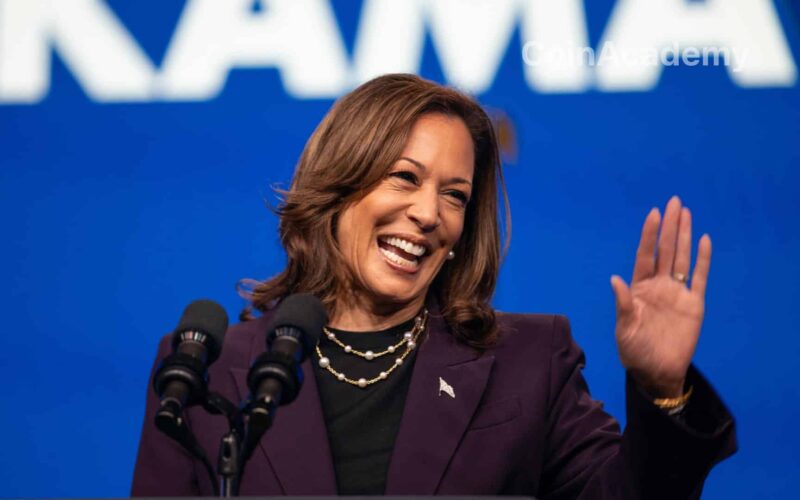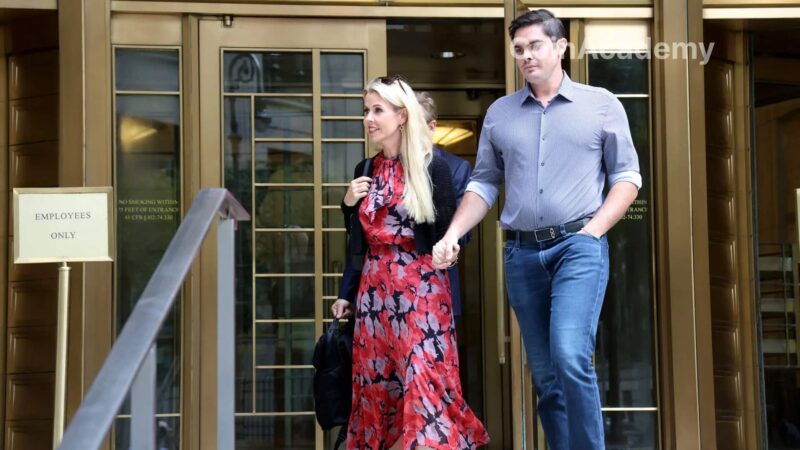As the 2024 presidential election approaches, the American political landscape is abuzz with activity, and the cryptocurrency industry is not staying on the sidelines. Chris Larsen, co-founder and executive chairman of Ripple, has recently thrown his support behind Vice President Kamala Harris, endorsing her bid for the presidency. This endorsement comes as Ripple and other crypto companies increasingly play an active role in American politics.
A Strategic Endorsement for Kamala Harris
“The best way to support the strength, security, and reliability of our democracy and economy is to elect Harris as president.”
Excerpt from the letter signed by multiple personalities
Chris Larsen is among a group of 88 business leaders who have officially expressed their support for Kamala Harris through a letter shared on CNBC. This endorsement marks a turning point for Larsen, especially considering that his company, Ripple, and its CEO, Brad Garlinghouse, have previously directed some of their political contributions towards Republican candidates. Larsen joins leaders from other major tech companies, such as Yelp and Snapchat, in publicly endorsing the Democratic candidate.
Ripple and its Political Contributions: A Bipartisan Approach
Ripple’s involvement in this election goes beyond endorsing Kamala Harris. The company has emerged as a major contributor to the pro-crypto political action committee (PAC) Fairshake. Ripple has donated approximately $48 million to this PAC and its affiliates to support candidates favorable to cryptocurrencies from both major parties. Fairshake’s mission is to elect politicians who are likely to promote favorable regulations for the digital asset industry.
Brad Garlinghouse has personally contributed $50,000 to another super PAC aimed at securing a Republican majority in the Senate, highlighting Ripple’s pragmatic and strategic approach to its political contributions.
Internal Divergences within Ripple?
Chris Larsen’s endorsement of Kamala Harris may raise questions about potential divergences of views within Ripple. While Larsen publicly supports the Vice President and her promise of business-friendly policies and economic stability, Brad Garlinghouse seems to lean more towards aligning with Republicans, particularly in the battle against legislators like Elizabeth Warren. This contrast illustrates the complexity of Ripple’s interests, which oscillate between the two parties depending on their long-term priorities.
The Shadow of the Ripple vs. SEC Lawsuit
Ripple is still entangled in a legal dispute with the Securities and Exchange Commission (SEC) regarding the classification of XRP, the company’s native token. The SEC accuses Ripple of violating securities laws in the sale of its digital assets. This case represents a prominent battle between the cryptocurrency sector and regulators, with significant implications for the industry’s future in the United States.
Chris Larsen’s support for Kamala Harris comes in the midst of this tense context, where SEC Chairman Gary Gensler is perceived as aligned with Elizabeth Warren’s positions regarding strict cryptocurrency regulation. This could explain Ripple’s caution in maintaining balanced political relationships while seeking to advance its interests against regulators.
Kamala Harris and Crypto: A Still Unclear Stance
To date, Vice President Kamala Harris has not expressed her position on cryptocurrency as explicitly as her Republican rival Donald Trump. While Trump has clearly stated his ambition to make the United States the global capital of cryptocurrencies if reelected, Harris’ stance remains more nuanced. However, some of her campaign advisors have hinted that she could support initiatives for the growth of the digital asset industry. One of her support committees has recently opened the door to cryptocurrency donations, suggesting a more open attitude towards this sector.
The Crypto Industry at a Crossroads of Politics
As cryptocurrency companies intensify their engagement in the 2024 presidential election, Ripple finds itself juggling diverging political interests. Chris Larsen’s endorsement of Kamala Harris adds to the complexity of lobbying strategies adopted by industry players, seeking to influence the regulatory future of cryptocurrencies in the United States. The clash between proponents of strict regulation, exemplified by Elizabeth Warren, and those advocating for a more liberal approach, such as Donald Trump, makes this election particularly crucial for the future of crypto in the country.




